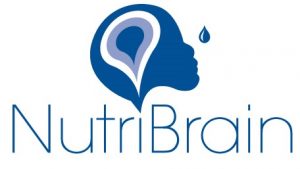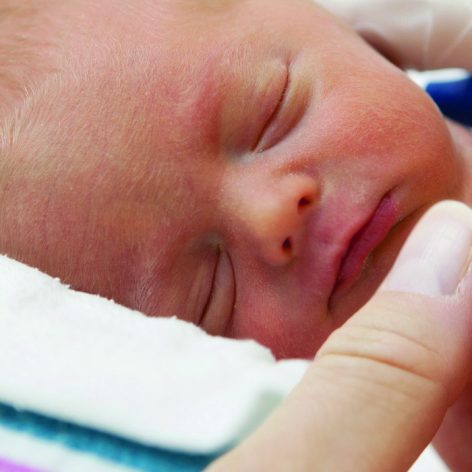Study Title
“NUTRIBRAIN: A randomised, double-blind, controlled trial to evaluate the effects of a nutritional product on brain integrity in preterm infants”
The study is registered at ISRCTN: https://www.isrctn.com/ISRCTN96620855?q=nutribrain&filters=&sort=&offset=1&totalResults=1&page=1&pageSize=10&searchType=basic-search
Study Objective
To investigate the effect of a nutritional product to be used to complement the regular feeding regimes of preterm infants (one powder containing Bifidobacterium breve M-16V, and one containing scGOS/lcFOS (9:1) and L-glutamine) versus a control product, given to preterm infants born at 24 to <30 weeks gestational age, on white matter microstructure integrity of the brain.
Description
Every year, 15 million babies are born prematurely. Extremely preterm infants face neurodevelopmental challenges, with more than 50% of these infants exhibiting cognitive disabilities, behavioural problems and mild to moderate motor impairments. These neurodevelopmental deficits place a major burden on health care and society. Hence, there is an urgent need for neuroprotective strategies to improve outcomes for these infants. The impact of nutrition on brain growth and cognition in preterm infants has been increasingly appreciated. There is substantial evidence for the favourable effects of probiotics, prebiotics and glutamine in preterm infants. There is no literature on the combined effects of these nutrients, and on their impact on neonatal brain development.
Methodology
The NUTRIBRAIN study is a double-blind, randomised, controlled, parallel-group, multi-centre study to investigate the effect of a nutritional product developed to complement the regular hospital feeding regimes of preterm infants on white matter microstructure integrity of the brain.

The study product is a Food for Special Medical Purposes (FSMP) in powder form: one powder containing Bifidobacterium breve M-16V, and one containing scGOS/lcFOS (9:1) and L-glutamine) added to (fortified) human milk and/or preterm formula) and will be compared to a control product.
October 2018
Enrollment started October 2018, with the aim of recruiting 168 infants born at 24 to <30 weeks of gestation. Infants will be assigned to one of the randomised groups and will be provided with either the study product or the control product. Both products will be added to the subject’s enteral feeding (fortified human milk and/or preterm formula) that will be prepared each day:
- Study product: Bifidobacterium breve M-16V, short-chain galacto-oligosaccharides (scGOS)/long-chain fructo-oligosaccharides (lcFOS) (9:1) and L-glutamine.
- Control product: Maltodextrin and casein and whey protein hydrolysates.
The infants will receive these products for a period of 6-12 weeks (depending on the gestational age), from 48-72 hours after birth until 36 weeks’ postmenstrual age or discharge home, whichever comes first.
Duration
The duration of the study for each subject from randomisation to study end will be a maximum of 28 months, comprising the 6-12 week intervention period and follow up until a corrected age of 24 months.
The infants will be evaluated on white matter microstructure integrity, as assessed using magnetic resonance diffusion tensor imaging (MRI) at term equivalent age (TEA). In addition, infectious morbidity, (neuro)development, immune function development, and safety parameters will be evaluated.
After the intervention period, subjects will be followed until 24 months corrected age. At this age, neurodevelopment will be assessed using the Bayley Scales of Infant and Toddler Development. Focus will be on cognitive development, and fine and gross motor development. During routine visits at 6, 15 and 24 months corrected age, parents will be asked for their infant’s history of physician diagnosed infections and allergy, number of doctor visits and number of hospital admissions using age specific questionnaires. During these visits, anthropometric data will also be collected to evaluate growth.
Collaboration
This study is a collaboration between Danone Research & Innovation and the Wilhelmina Children’s Hospital, Utrecht. It is funded by the Athena Grant, a collaboration of the University Medical Centre Utrecht, Danone Research & Innovation and ‘Utrecht Centre for Food and Health – research program specialized nutrition’, subsidy from the Dutch Ministry of Economic Affairs, Utrecht Province and the municipality of Utrecht.
Country: Netherlands
For further information please contact prof. dr. Manon Benders, Whilhelmina KinderZiekenhuis (m.benders@umcutrecht.nl) or Lidewij Schipper, Principal Scientist Gut-Brain & Neuroscience, Danone Research & Innovation (lidewij.schipper@danone.com)



